Entertainment
Nick Lachey Addresses Criticism Around Live ‘Love Is Blind’ Reunion on September 19, 2023 at 9:26 pm Us Weekly
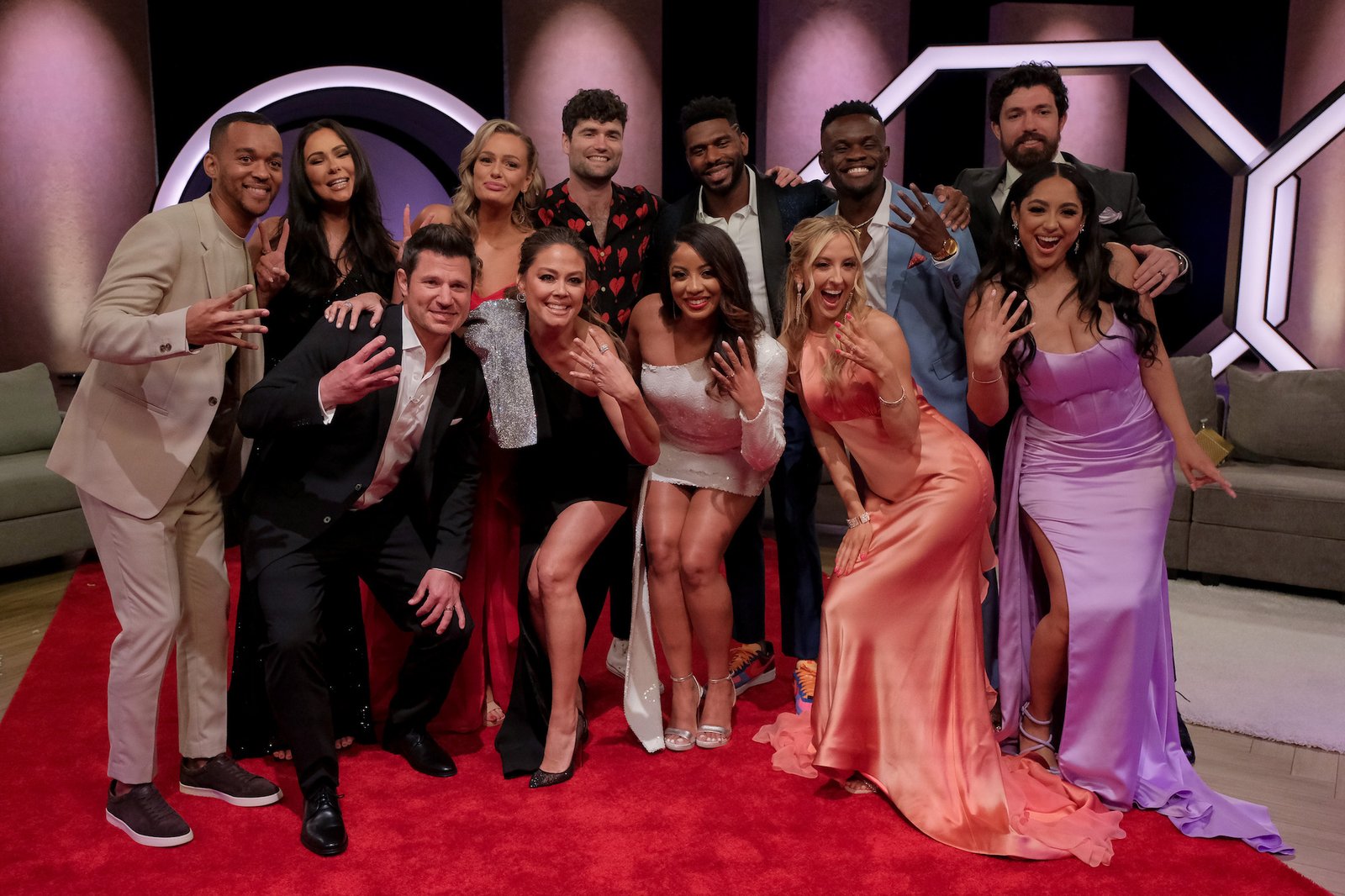
Nick Lachey has seen the criticism surrounding the season 4 reunion of Love Is Blind — and he doesn’t disagree with the negative response.
Lachey, 49, addressed the live event, which took place in April and ended up delayed by 16 hours, during an appearance on SiriusXM’s Radio Andy.
“I appreciate what you said after the fact because I think very few people understand like you do what all goes into that and what’s involved,” Lachey told Andy Cohen on Monday, September 19, after the Bravo executive producer, 55, weighed in on the drama at the time.
Lachey acknowledged that the “technology failed” when it came to executing the idea, adding, “But to your point, a reunion, there’s so many things you want to flush out, so many things you want to get to and to try to do that in a timetable that’s finite is not the way to go.”
Netflix made headlines earlier this year after users couldn’t watch the season 4 Love Is Blind special at its advertised time. The episode, which was set to premiere at 8 p.m. ET, was ultimately filmed for a live audience and uploaded the following day.
“To everyone who stayed up late, woke up early, gave up their Sunday afternoon … we are incredibly sorry that the Love is Blind Live Reunion did not turn out as we had planned,” the company tweeted about the technical difficulties. “We’re filming it now and we’ll have it on Netflix as soon as humanly possible. Again, thank you and sorry.”
Marshall Glaze, Irina Solomonov, Nick Lachey, Micah Lussier, Vanessa Lachey, Paul Peden, Tiffany Pennywell, Brett Brown, Chelsea Griffin, Kwame Appiah, Zack Goytowski, Bliss Poureetezadi at Sunset Bronson Studios for the ‘Love is Blind’ season 4 reunion. Adam Rose/Netflix
Days later, Cohen explained what he thought didn’t work about the concept. “Live reunions are a very bad idea. There is a reason we don’t do reunions live,” he said on his radio show. “There is a reason [reunion episodes are] edited down. We could talk about a topic on a reunion taping for 25 minutes, for 45 minutes before really getting to the heart of something.”
According to Cohen, the priority should be the quality and not the speed.
“Reunion shows are almost like a fishing expedition. You’re talking about different topics [and] you don’t know what’s going to land [or] what’s going to hit,” he continued. “By the way, a lot of times people will have incredible one-liners that no one in the room really heard because someone on the other side is talking. So we go through the footage, we hone it, we edit it [and it] is finally shaped.”
He concluded: “There are ebbs and flows. You can’t say, ‘OK, we’re going to do it tightly in an hour.’ Sometimes it takes longer to get someone revved up emotionally. By the way, you want them to be feeling the most intense feelings that they can about the seasons. That takes time to shape and craft. There’s an art here. You can’t just bang it out and say, ‘OK, we’re doing it from 9:00 to 9:59 and that’s when the reunion’s going to be.’”
Nick’s wife — and cohost — Vanessa Lachey also took to social media to address the controversy.
“I want to take a moment, on this platform, to acknowledge the intense vulnerability that goes into our show (each season). I’m so proud of this cast and their willingness to put themselves out there. It wasn’t easy and this has been a LONG process to get to the reunion,” she wrote via Instagram that same month. “Please keep in mind online (and in life) that ‘words have weight.’ What you say to someone you don’t know (and don’t know the whole story to) can have a lasting affect on them… in many different ways.”
During his interview on Monday, Nick defended his and Vanessa’s process as hosts.
“You’re cutting people off. In your ear you’re getting, ‘We’ve got to go, move on!’ So you’re trying to let people flush out their stories and get things off their chest and you’re doing it while you’re being rushed,” he noted. “In fact, I didn’t do anything wrong.”
Nick Lachey has seen the criticism surrounding the season 4 reunion of Love Is Blind — and he doesn’t disagree with the negative response. Lachey, 49, addressed the live event, which took place in April and ended up delayed by 16 hours, during an appearance on SiriusXM’s Radio Andy. “I appreciate what you said after
Us Weekly Read More
Entertainment
What We Can Learn Inside 50 Cent’s Explosive Diddy Documentary: 5 Reasons You Should Watch
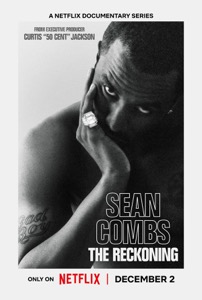
50 Cent’s new Netflix docuseries about Sean “Diddy” Combs is more than a headline-grabbing exposé; it is a meticulous breakdown of how power, celebrity, and silence can collide in the entertainment industry.
Across its episodes, the series traces Diddy’s rise, the allegations that followed him for years, and the shocking footage and testimonies now forcing a wider cultural reckoning.
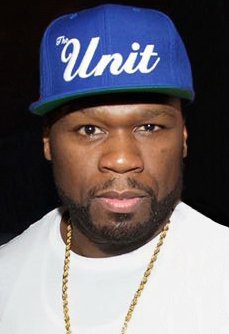
1. It Chronicles Diddy’s Rise and Fall – And How Power Warps Reality
The docuseries follows Combs from hitmaker and business icon to a figure facing serious criminal conviction and public disgrace, mapping out decades of influence, branding, and behind-the-scenes behavior. Watching that arc shows how money, fame, and industry relationships can shield someone from scrutiny and delay accountability, even as disturbing accusations accumulate.
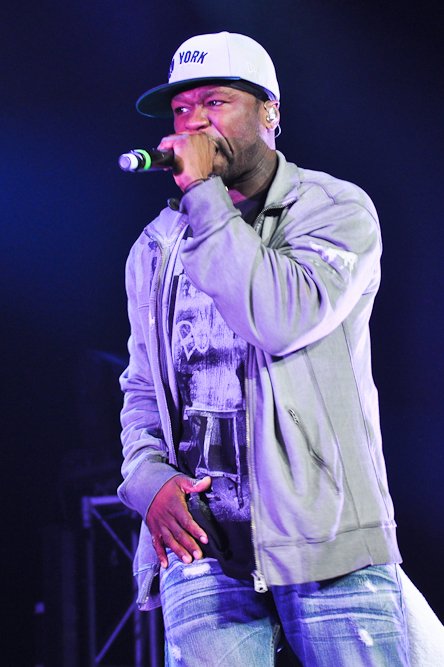
2. Never-Before-Seen Footage Shows How Narratives Are Managed
Exclusive footage of Diddy in private settings and in the tense days around his legal troubles reveals how carefully celebrity narratives are shaped, even in crisis.
Viewers can learn to question polished statements and recognize that what looks spontaneous in public is often the result of strategy, damage control, and legal calculation.
3. Survivors’ Stories Highlight Patterns of Abuse and Silence
Interviews with alleged victims, former staff, and industry insiders describe patterns of control, fear, and emotional or physical harm that were long whispered about but rarely aired in this detail. Their stories underline how difficult it is to speak out against a powerful figure, teaching viewers why many survivors delay disclosure and why consistent patterns across multiple accounts matter.
4. 50 Cent’s Approach Shows Storytelling as a Tool for Accountability
As executive producer, 50 Cent uses his reputation and platform to push a project that leans into uncomfortable truths rather than protecting industry relationships. The series demonstrates how documentary storytelling can challenge established power structures, elevate marginalized voices, and pressure institutions to respond when traditional systems have failed.
5. The Cultural Backlash Reveals How Society Handles Celebrity Accountability
Reactions to the doc—ranging from people calling it necessary and brave to others dismissing it as a vendetta or smear campaign—expose how emotionally invested audiences can be in defending or condemning a famous figure. Watching that debate unfold helps viewers see how fandom, nostalgia, and bias influence who is believed, and why conversations about “cancel culture” often mask deeper questions about justice and who is considered too powerful to fall.
Entertainment
South Park’s Christmas Episode Delivers the Antichrist
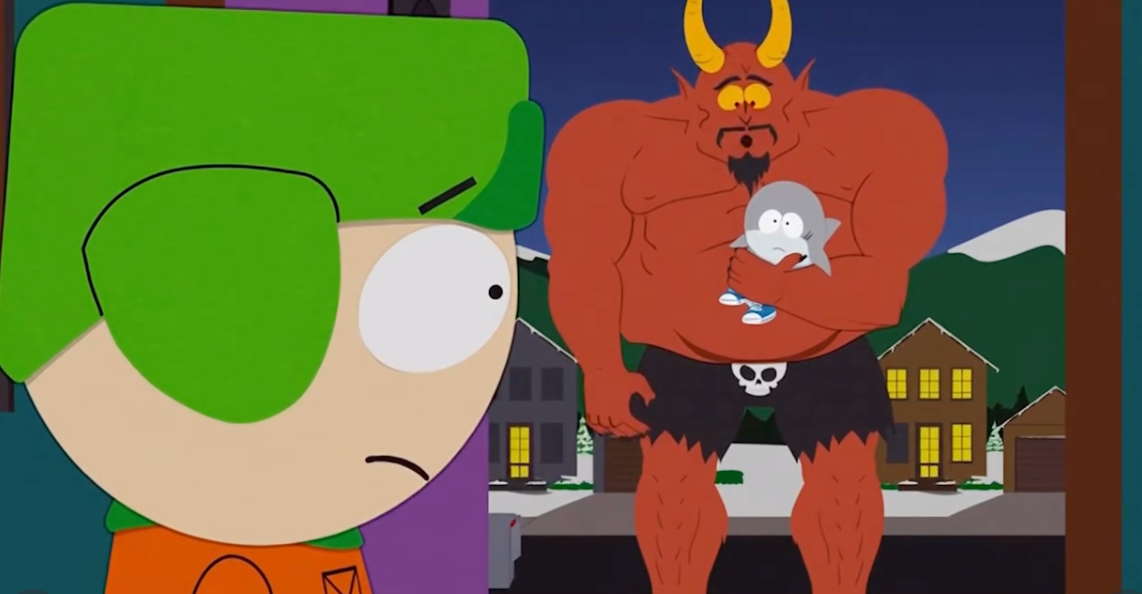
A new Christmas-themed episode of South Park is scheduled to air with a central plot in which Satan is depicted as preparing for the birth of an Antichrist figure. The premise extends a season-long narrative arc that has involved Satan, Donald Trump, and apocalyptic rhetoric, positioning this holiday episode as a culmination of those storylines rather than a stand‑alone concept.
Episode premise and season context
According to published synopses and entertainment coverage, the episode frames the Antichrist as part of a fictional storyline that blends religious symbolism with commentary on politics, media, and cultural fear. This follows earlier Season 28 episodes that introduced ideas about Trump fathering an Antichrist child and tech billionaire Peter Thiel obsessing over prophecy and end‑times narratives. The Christmas setting is presented as a contrast to the darker themes, reflecting the series’ pattern of pairing holiday imagery with controversial subject matter.
Public and political reactions
Coverage notes that some figures connected to Donald Trump’s political orbit have criticized the season’s portrayal of Trump and his allies, describing the show as relying on shock tactics rather than substantive critique. Commentators highlight that these objections are directed more at the depiction of real political figures and the show’s tone than at the specific theology of the Antichrist storyline.
At the time of reporting, there have not been widely reported, detailed statements from major religious leaders focused solely on this Christmas episode, though religion-focused criticism of South Park in general has a long history.
Media and cultural commentary
Entertainment outlets such as The Hollywood Reporter, Entertainment Weekly, Forbes, Slate, and USA Today describe the Antichrist arc as part of South Park’s ongoing use of Trump-era and tech-world politics as material for satire.
Viewer guidance and content advisory
South Park is rated TV‑MA and is intended for adult audiences due to strong language, explicit themes, and frequent use of religious and political satire. Viewers who are sensitive to depictions of Satan, the Antichrist, or parodies involving real political figures may find this episode particularly objectionable, while others may view it as consistent with the show’s long‑running approach to controversial topics. As with previous episodes, individual responses are likely to vary widely, and the episode is best understood as part of an ongoing satirical series rather than a factual or theological statement.
Entertainment
Sydney Sweeney Finally Confronts the Plastic Surgery Rumors
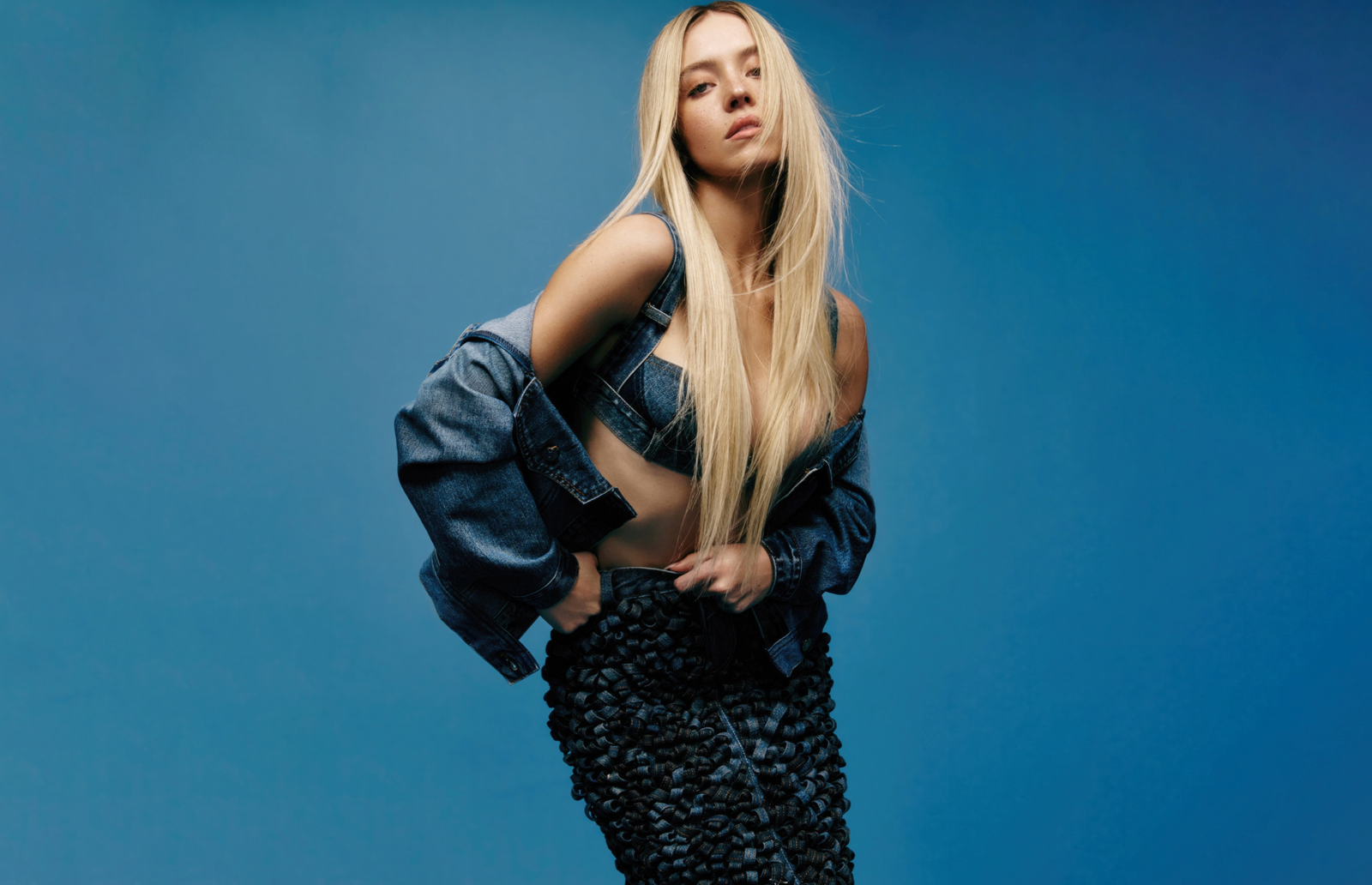
Sydney Sweeney has decided she is finished watching strangers on the internet treat her face like a forensic project. After years of side‑by‑side screenshots, “then vs now” TikToks, and long comment threads wondering what work she has supposedly had done, the actor is now addressing the plastic surgery rumors directly—and using them to say something larger about how women are looked at in Hollywood and online.
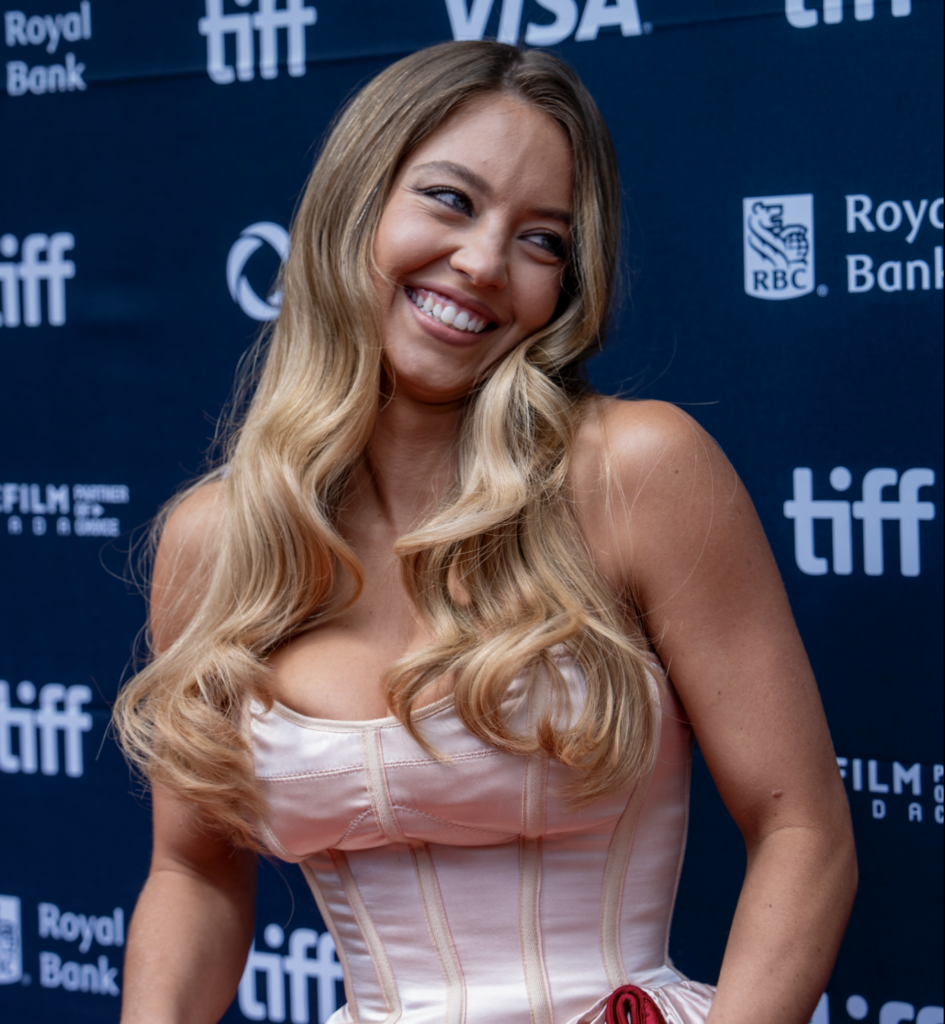
Growing Up on Camera vs. “Before and After” Culture
Sweeney points out that people are often mistaking normal changes for procedures: she grew up on camera, her roles now come with big‑budget glam teams, and her body has shifted as she has trained, aged, and worked nonstop. Yet every new red‑carpet photo gets folded into a narrative that assumes surgeons, not time, are responsible. Rather than walking through a checklist of what is “real,” she emphasizes how bizarre it is that internet detectives comb through pores, noses, and jawlines as if they are owed an explanation for every contour of a woman’s face.
The Real Problem Isn’t Her Face
By speaking up, Sweeney is redirecting the conversation away from her features and toward the culture that obsesses over them.
She argues that the real issue isn’t whether an actress has had work done, but why audiences feel so entitled to dissect her body as public property in the first place.
For her, the constant speculation is less about curiosity and more about control—another way to tell women what they should look like and punish them when they do not fit. In calling out that dynamic, Sweeney isn’t just defending herself; she is forcing fans and followers to ask why tearing apart someone else’s appearance has become such a popular form of entertainment.















